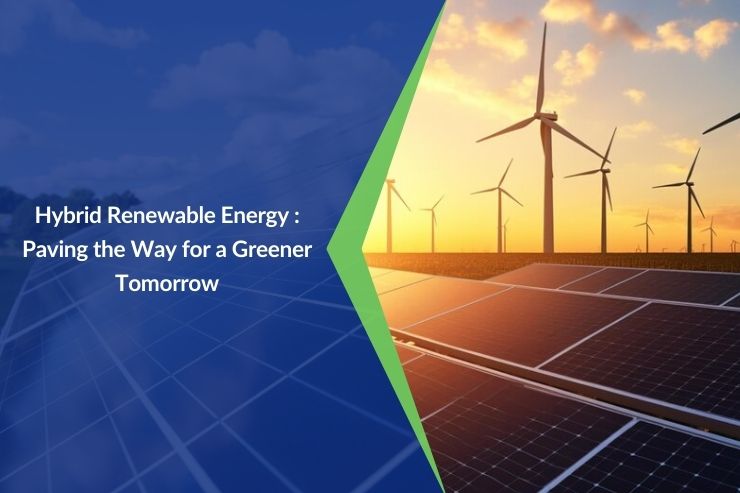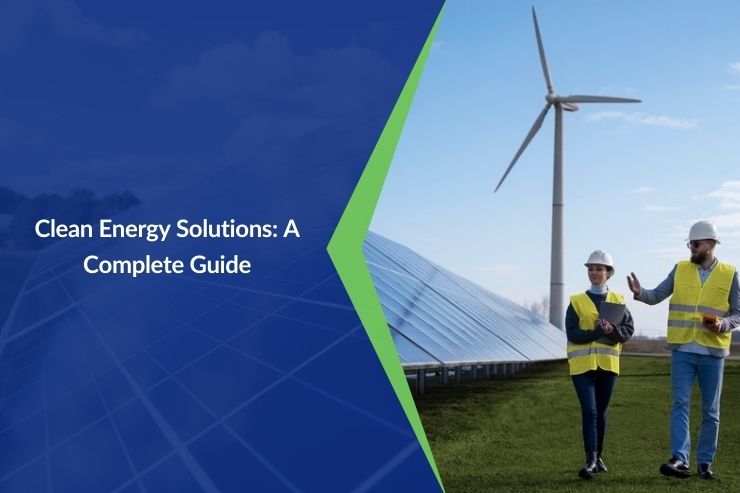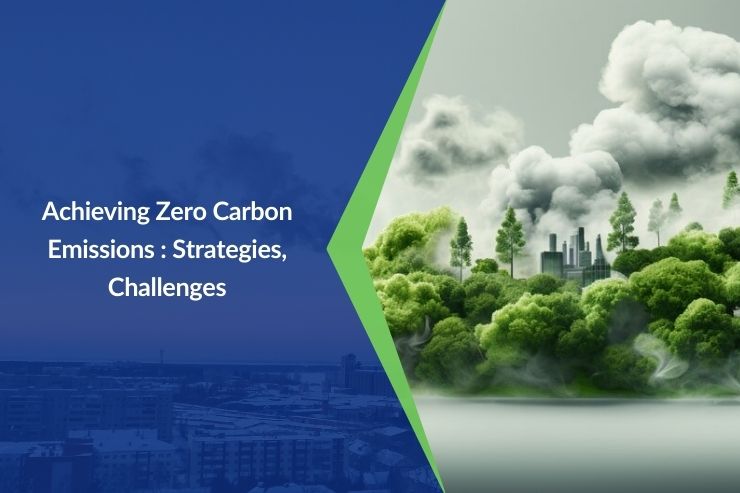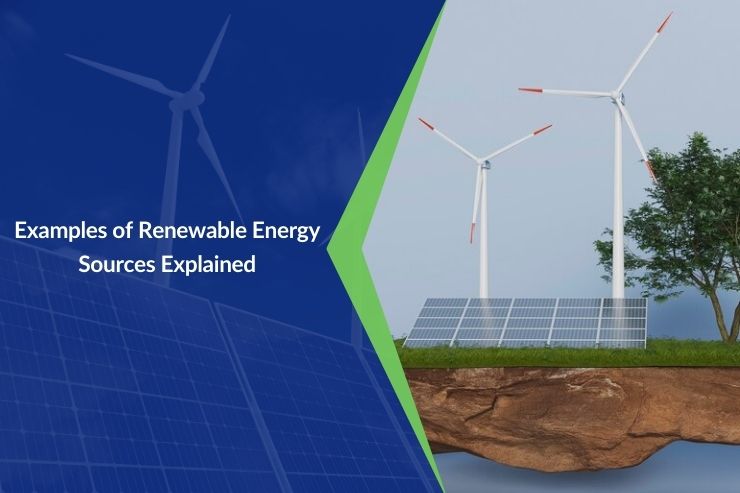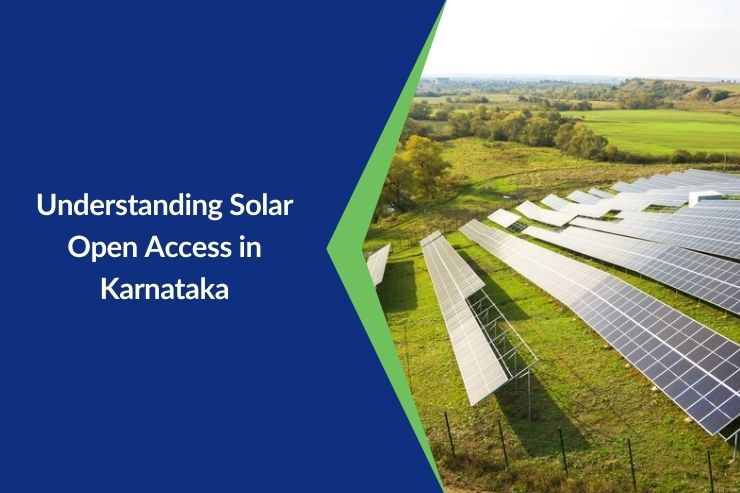Introduction to Hybrid Renewable Energy
Hybrid renewable energy systems are really changing the game when it comes to power. By combining sources, they offer a stable and dependable energy solution that can adapt to the impacts of our ever-evolving climate.
This is basically the solution, for eco power; a consistent and reliable energy source in light of our planet’s shifting climate patterns. In this blog post lets delve into how these systems work so we can understand their significance, in shaping our energy landscape.
Types of Hybrid Renewable Energy Systems
Solar-Wind Hybrid Systems
The hybrid solar-wind systems are a brilliant showcase of innovation in renewable energy integration. Solar energy systems combine solar panels and wind turbines to trap energy irrespective of mood swings in the weather—be it the warmth of sunlight or gusts of wind. Managed by an advanced control system, the components combine perfectly to ensure energy production is uninterrupted and effective. The benefits of such arrangements are immense; they do much more than just reduce the carbon footprint and lessen our dependence on fossil fuels.
Wind-Hydro Hybrid Systems
On another front, wind-hydro hybrid systems combine wind power generation with the reliability of hydroelectric systems, creating a versatile and robust energy solution. These configurations are designed to harness wind energy when available and supplement it with hydropower, effectively smoothing out the variability in energy production associated with wind alone. The operational benefits of these systems are substantial, offering enhanced stability and efficiency.
Advantages of Hybrid Renewable Energy
Environmental Benefits
In terms of the environment, hybrid renewable energy systems are game-changers. They reduce the carbon footprint from conventional energy production by tapping into nature’s unlimited supply of renewable resources. But, switching to cleaner sources makes energy sustainable, and we remain at the front line in the global fight against climate change.
Economic Advantages
Such systems optimise energy use, resulting in considerable cost savings over time. By lessening one’s dependence on fossil fuels, with prices that seem to swing up and down without much warning, it is easy for businesses and consumers to enjoy more reliable and manageable energy budgets. It is this kind of financial efficiency that makes hybrid systems increasingly preferred for long-term investment energy solutions.
Reliability and Resilience
Other than the green and cost-effective ideas, hybrid renewable energy systems portray reliability and resilience. They ensure a constant power supply, critical in areas where varied environmental conditions prevail. In such systems, multiple energy sources can retain power even when one is less effective; hence, irrespective of weather conditions or time of the day, the energy output remains stable and reliable. That’s the resiliency needed to back an energy infrastructure that can take the forces the changing climate puts on it.
Challenges and Considerations
Integration Challenges
Integrating various energy technologies introduces complex logistical and technical challenges. These systems require a well-coordinated effort to ensure different energy sources work in sync, overcoming technical hurdles to achieve seamless operation.
Regularity and Policy Issues
In many cases, the landscape of regulatory and policy frameworks has been left behind by the pace of technological innovation. As such, features particular to hybrid systems are not accommodated within current frameworks, calling for engagement with policymakers. Advocating for updated regulations that recognise and support these innovations is crucial for wider adoption and effective implementation.
Technological Limitations
One of the major factors that can cause a decrease in the effectiveness of hybrid systems is technological constraints. Some of these problems include energy storage capacity and integration of different kinds of energy sources, which need constant attention and development. Solving these technological challenges is necessary to maximise performance and reliability to meet today’s energy demand requirements.
Applications and Use Cases
Hybrid Energy Projects Worldwide
Hybrid renewable energy systems are making significant impacts worldwide, proving their worth across diverse settings. These innovative systems are not confined to one locale or purpose; they extend their benefits from secluded rural areas to the dynamic energy demands of sprawling urban centres. By providing customised solutions that address specific energy needs, hybrid systems demonstrate their ability to adapt and serve various sectors. These practical implementations are crucial in showcasing how sustainable energy practices can be seamlessly integrated into everyday energy management, promoting environmental stewardship without sacrificing efficiency.
Industries Benefiting from Hybrid Systems
The versatility of hybrid systems is further exemplified in global case studies. These real-world applications reveal how effectively these systems can transform energy consumption habits. Whether it’s a wind-solar setup powering a small community or a more complex wind-hydro configuration supporting industrial operations, the evidence is clear: hybrid systems are reshaping energy paradigms. By adapting to both geographical and climatic conditions, they ensure optimal energy production, proving sustainable solutions can meet diverse global energy requirements.
Future Trends in Hybrid Renewable Energy
The outlook for hybrid renewable energy systems is simply very promising going into the future. The potential is huge and is driven by relentless innovation and a shifting market landscape favourable to sustainability and efficiency.
The growth trajectory of hybrid renewable energy is only set to go up, impelled by a growing awareness of the need for sustainable energy solutions and the technological resources to realise the same. With their increasing integration into global energy markets, their potential role in promoting renewable energy consumption becomes more pronounced. This increasing integration is expected to fulfil all the current energy demands and then drive this shift towards a stronger, more effective, and more viable energy structure of the world.
These developments are a sign of a strong future for hybrid renewable energy. With the further development of technology and market dynamics tilting in favour of green solutions, hybrid systems are bound to have more impact, thereby becoming important stakeholders in the move toward green energy practices globally.
Conclusion
The journey towards a greener tomorrow is well underway, and hybrid renewable energy systems are at the forefront. They present a promising road toward independent, sustainable energy use with associated environmental benefits and economic incentives. In that respect, the further we continue to innovate and adapt, the more promising, but actually essential, hybrid renewable energy has as a future.
Frequently Asked Questions
Why use Hybrid Renewable Energy Systems?
Hybrid systems hold the secret to a more reliable and efficient production of energy by harnessing the two best worlds to provide a continuous flow of energy, regardless of the fluctuations of the individual sources.
How do Hybrid Renewable Energy Systems Work?
The idea of hybrid renewable energy systems combines several renewable technologies that are used with the optimum through a central control unit. The control unit manages the output that balances the load between sources such as wind and solar for maximum efficiency.
How does Hybrid Renewable Energy Help in Reducing Energy Costs?
Through the enhancement of efficiency and less reliance on grid power, hybrid systems have greatly reduced energy bills, providing quicker paybacks.
Are there Specific Environmental Benefits of Hybrid Renewable Energy?
Definitely, these systems reduce the reliance on fossil fuels drastically; hence, reducing greenhouse gas emissions and combating climate change.
What Role does Energy Storage Play in Hybrid Renewable Energy Systems?
Energy storage solutions will play an important role. Through excess power during the peak production periods, the system can store this excess for use during lower production periods, thus ensuring a constant supply of energy.
What Policy Incentives Support the Adoption of Hybrid Renewable Energy?
The uptake and research into hybrid renewable energy systems benefit from several incentives, including tax breaks, grants, and subsidies so that they can be more accessible and affordable.

